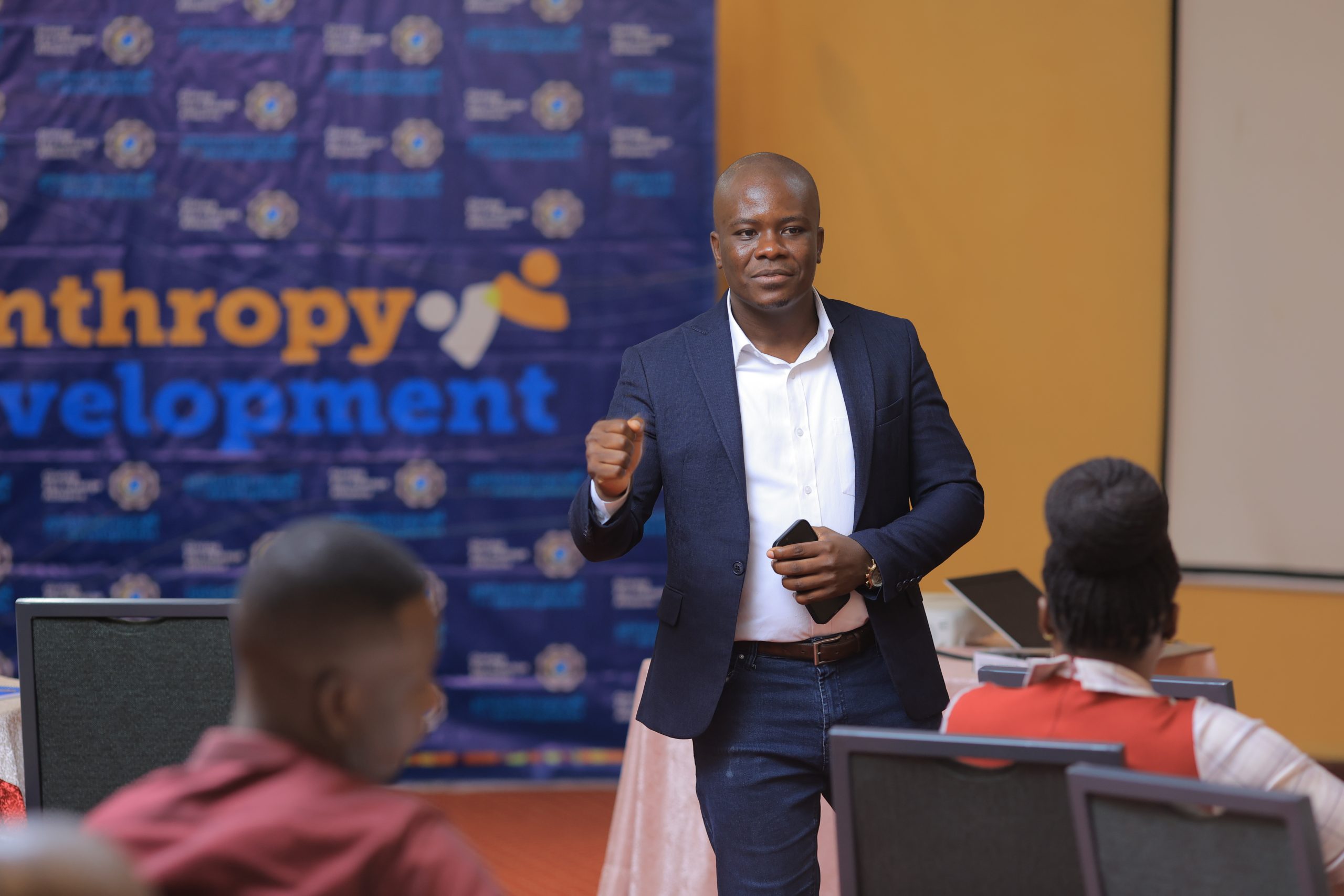
Navigating Shifts in Local Resource Mobilization for Development
As the global funding landscape undergoes significant shifts, development organizations worldwide face pressing challenges in resource mobilization. Chris Nkwatsibwe; Team Leader, Policy, Governance, and Civic Engagement speaking at the refresher training on Local Fundraising and Resource Mobilization, underscored the importance of adapting to these changes, highlighting the necessity of local fundraising strategies and emphasizing the potential of community-based resource mobilization.
Adapting to Shifts in International Donor Support
With funding from traditional donors becoming increasingly constrained, especially from regions such as Europe, organizations must consider alternative resource strategies. Economic pressures in donor countries, coupled with mounting costs of global conflicts like those in Ukraine and Israel-Palestine, have further diminished the pool of funds available for international development.
“We are witnessing a redirection of resources,” Chris noted, “and this means we must be strategic in mobilizing support from within our communities.” Recognizing the potential impact on African countries, he called for creative approaches to bridge funding gaps, urging organizations to think beyond traditional donor dependency and to cultivate local sources of support.
Harnessing Local Generosity for Community-Driven Philanthropy
Chris’s remarks highlighted the often-overlooked potential of community philanthropy. African communities, he emphasized, are no strangers to supporting each other in times of need. He pointed to the way communities come together during personal or family crises, such as funerals, to offer financial and emotional support as an example of the inherent generosity within these societies. “When someone faces hardship, community members rally to help,” Chris stated, illustrating the power of local giving and support networks. This culture of mutual support, he believes, can be channeled into organized philanthropy. When organizations harness this tradition, they can tap into community-driven resources to fund local projects and initiatives. Chris also acknowledged that while mobilizing local resources is not without its challenges, it is a viable way to build self-reliance and resilience within development sectors across the region. Chris encouraged participants to leverage training in resource mobilization strategies, emphasizing the importance of bringing lessons learned back to their organizations and implementing them. “It’s about asking ourselves what has changed and what we can take back from these trainings,” he said, urging participants to take practical steps to apply new knowledge.
To further motivate organizations to engage in local fundraising efforts, Chris highlighted the Matched Funding Program, which aims to support projects that successfully raise 50% of their funding locally. “This is an opportunity for you to put the skills you have learned into practice, mobilize resources within your communities, and contribute to something impactful,” he said.
Shifts in NGO Oversight in Uganda
In recent years, the regulatory framework governing NGOs in Uganda has also evolved, impacting how these organizations operate and raise funds. The National NGO Bureau, established in 2016, was a semi-autonomous entity tasked with oversight functions for non-governmental organizations in Uganda. However, recent changes and the amendment of the NGO Act have moved its responsibilities back under the Ministry of Internal Affairs. This restructuring has raised concerns among stakeholders regarding the efficiency and independence of NGO regulation. Chris addressed these changes, explaining the implications of the restructuring. With the Bureau now operating as a department within the Ministry, NGOs may face additional bureaucratic challenges that could slow down approvals and impact oversight. The reduced staffing levels and shifting responsibilities may strain service delivery, he noted, creating new challenges for NGOs already grappling with funding issues. While acknowledging the challenges, Chris was optimistic about the role communities can play in sustaining local initiatives. “If we are to thrive in this new landscape, we must engage communities directly, use local networks, and innovate in our approach to mobilizing resources,” he said. Community philanthropy and local resource mobilization offer financial benefits and the opportunity to strengthen community ownership of development projects, making them more resilient and sustainable.



